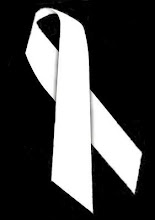Preliminary report of the 2010 Global Media Monitoring Project
Only 24% of persons seen, heard, or read about in the news are female.
This is one of the key findings of the 2010 Global Media Monitoring Project (GMMP). The preliminary report is being released on 2 March 2010 at a panel discussion and debate on the occasion of the 54th session of the UN Commission on the Status of Women in New York.
10 November 2009 was an ordinary day at work for newsroom staff around the world. It was, however, a special day for volunteer groups in 130 countries across the world who were poring over their national newspapers, listening intently to radio newscasts and closely watching local television. Pencils and coding grids in hand, their objective was to observe, analyze and record their findings on selected indicators of gender in the news for the Global Media Monitoring Project – the world’s largest research and action initiative on gender in the news media. The project’s overarching purpose is to bring about fair and balanced gender representation in and through the news media.
The results contained in the report are preliminary, based on a sample of 42 countries in Africa, Asia, Latin America, the Caribbean, Pacific Islands and Europe. The findings encompass 6,902 news items and 14,044 news subjects, including people interviewed in the news.
Edouard Adzotsa, General Secretary of the Central Africa Union of Journalists and GMMP Coordinator in Congo Brazzaville, observed during the monitoring day that, “News media seems to serve male interests, attention to women is extremely negligible even though women outnumber men nationally, women are the lifeblood of communities particularly in informal settlements and in the rural areas.”
Among the key findings are:
24% of the people interviewed, heard, seen or read about in mainstream broadcast and print news are female; only 16% of all stories focus specifically on women.
Women have achieved near parity as givers of popular opinion in news stories. But less than one out of every five experts interviewed is female, and men predominate strongly as eyewitnesses and providers of personal experience in news stories.
Almost one half (48%) of all news stories reinforce gender stereotypes, while 8% of news stories challenge gender stereotypes. Women in the news are identified by their familial relationships (wife, mother, daughter) five times more often than men.
Overall, news stories by female reporters are much fewer than news stories by male reporters. News stories by female reporters have considerably more female news subjects than stories by male reporters and challenge gender stereotypes almost twice as often as stories by male reporters.
The study reveals overall that women remain grossly underrepresented in news coverage in contrast to men, resulting in news that depicts a world in which women are largely absent. The research also shows a paucity of women’s views and opinions compared to male perspectives in mainstream news reports.
Abebech Wolde with the Ethiopian Media Women’s Association and GMMP Coordinator for Ethiopia said, “We hope that what we are going to say about the representation of gender in the media will be taken seriously by media managers.’’
Comparison with results of the three previous editions of the GMMP carried out every five years since 1995 shows signs of change towards gender balanced and gender responsive news. Female news subjects have increased from 17% to 24% in the last 15 years. Popular opinion in the news is now nearly at parity, compared to 2005 when at 66%, popular opinion was largely provided by men.Aidan White, General Secretary of the International Federation of Journalists, has stated in the IFJ publication Getting the Balance Right: Gender Equality in Journalism that “Fair gender portrayal is a professional and ethical aspiration, similar to respect for accuracy, fairness and honesty.”
The Global Media Monitoring Project is coordinated by the World Association for Christian Communication (WACC), an international NGO with offices in Canada and the United Kingdom which promotes communication for social change, in collaboration with data analyst Media Monitoring Africa, South Africa. Gender Links, also based in South Africa, provided advice on refining the monitoring tools and methodology. Volunteers taking part in the monitoring day include gender and media activists, grassroots communication groups, university researchers and students of communication, media professionals, journalists associations, alternative media networks and faith-based groups. The project is supported by the United Nations Development Fund for Women (UNIFEM).
The preliminary report is available in English at www.whomakesthenews.orgExecutive Summaries are available in English, French and Spanish. Final global, regional and national reports will be published in September 2010.
Monday, 8 March 2010
Who Makes the News?
Here's an interesting press release about women in the news. Not exactly related to violence against women, but still very relevant to gender equality:
Subscribe to:
Post Comments (Atom)

No comments:
Post a Comment